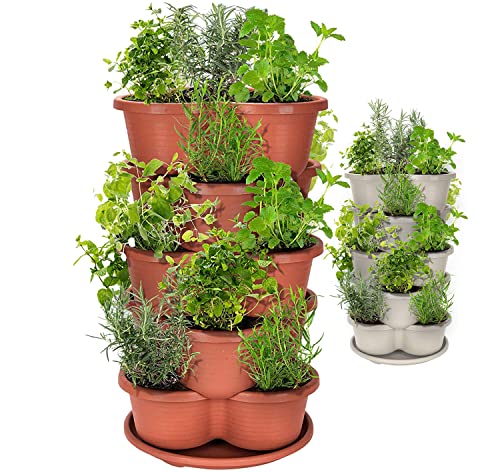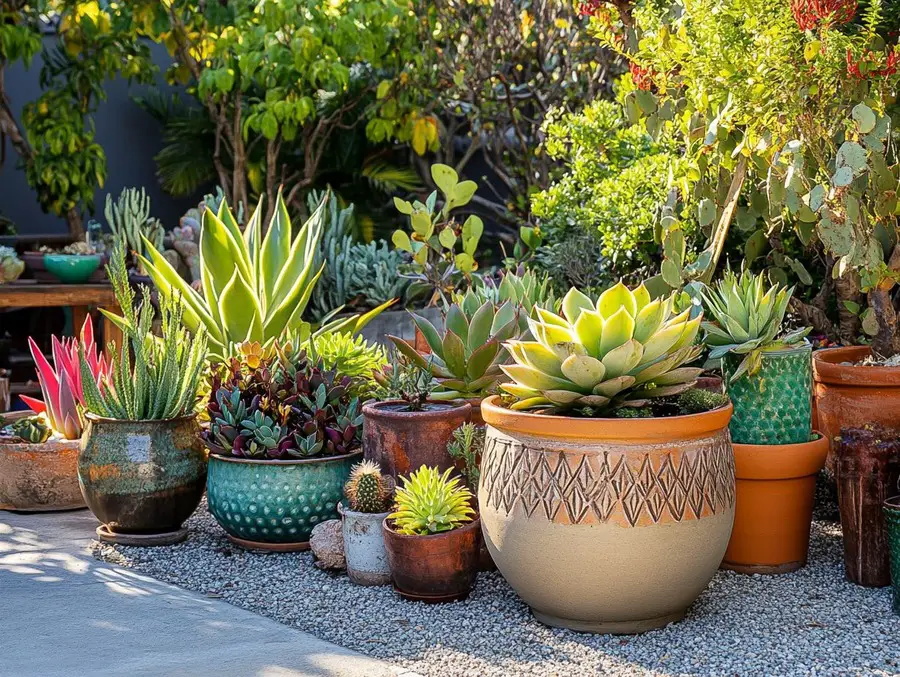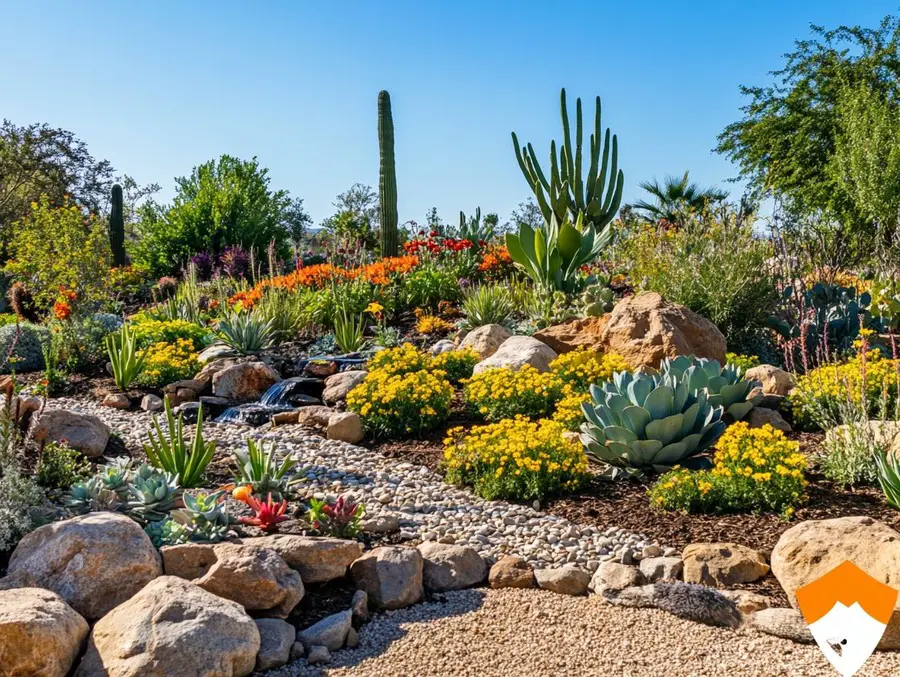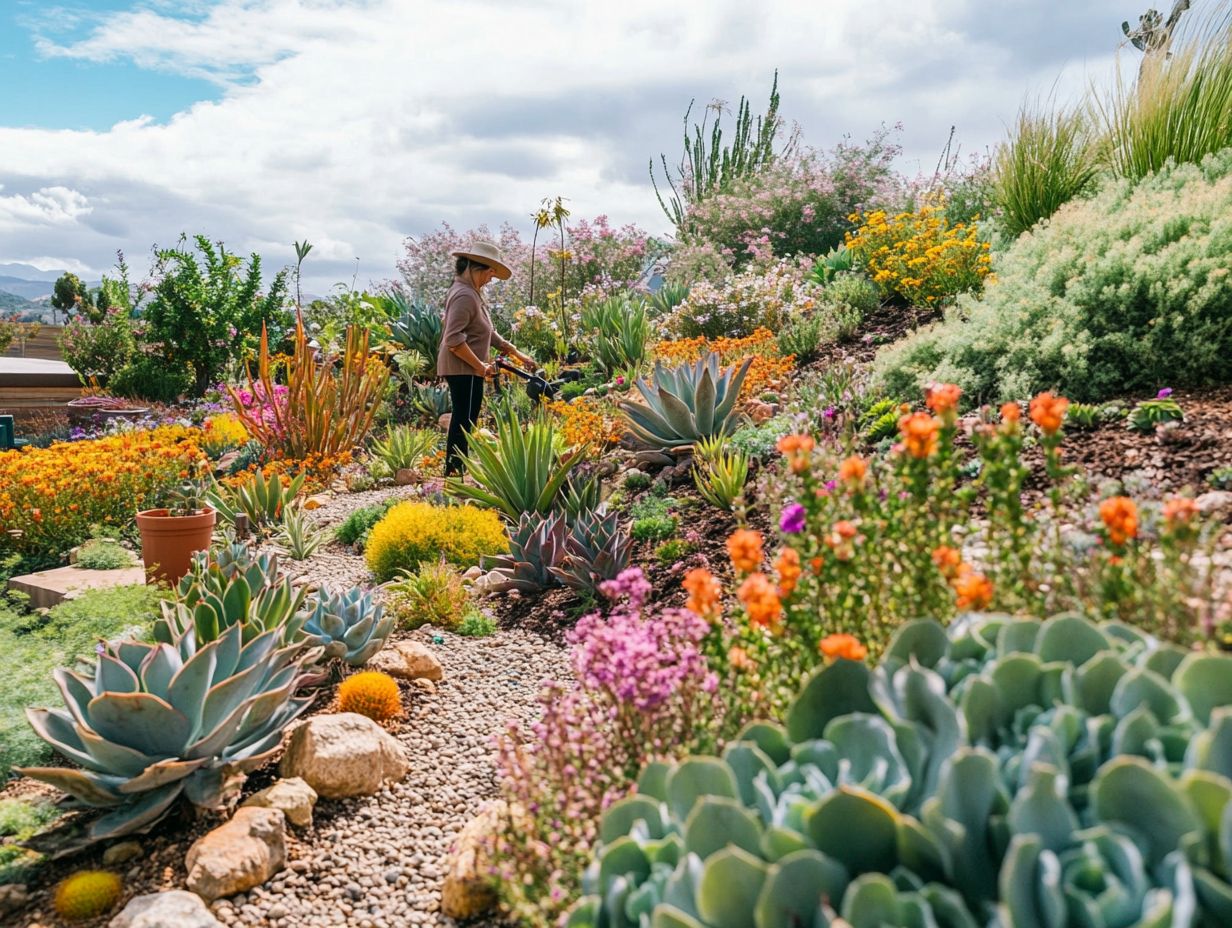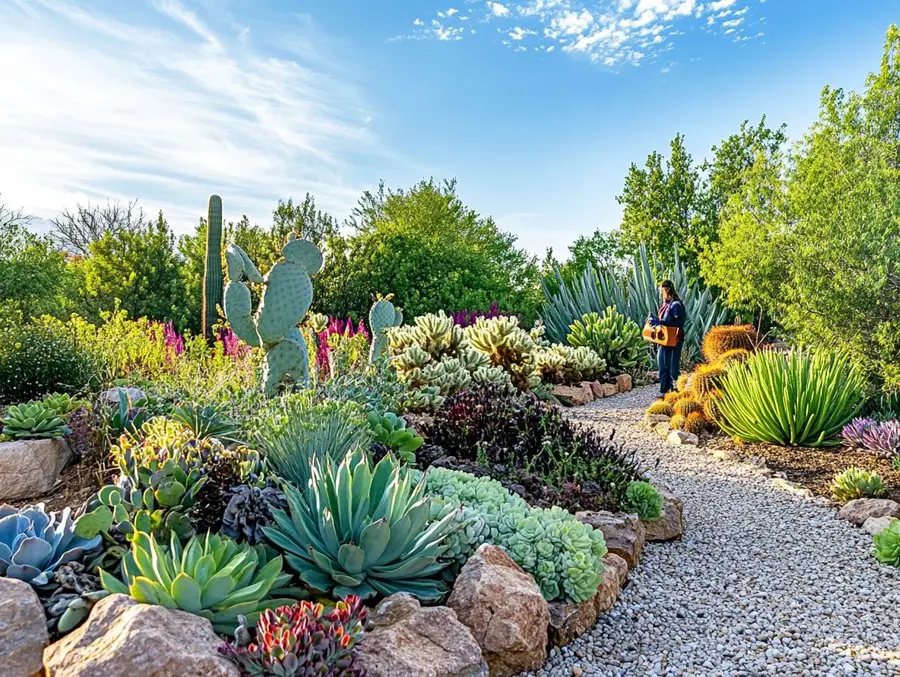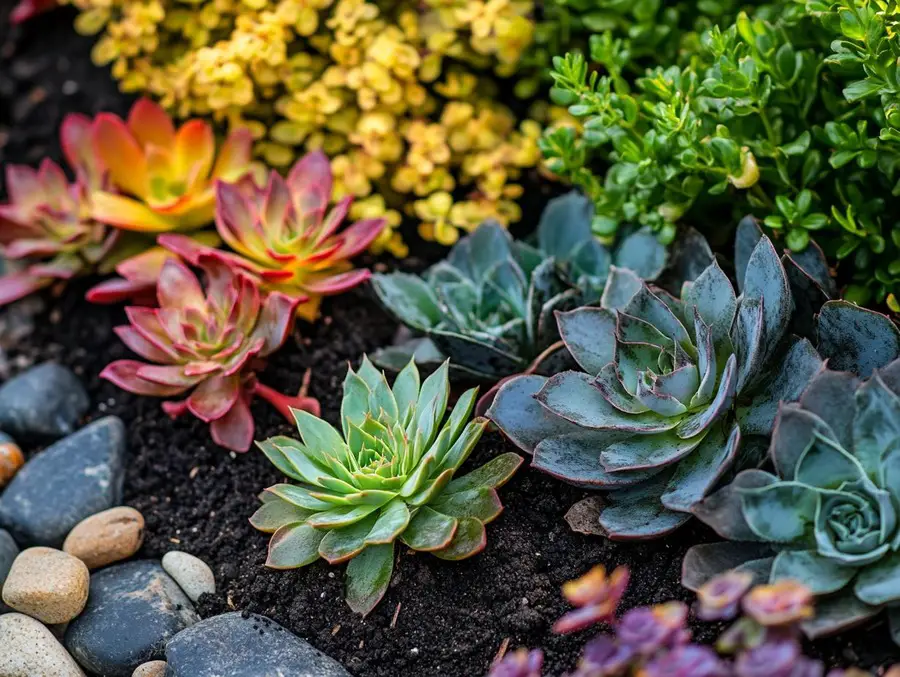We use affiliate links. If you purchase something using one of these links, we may receive compensation or commission.
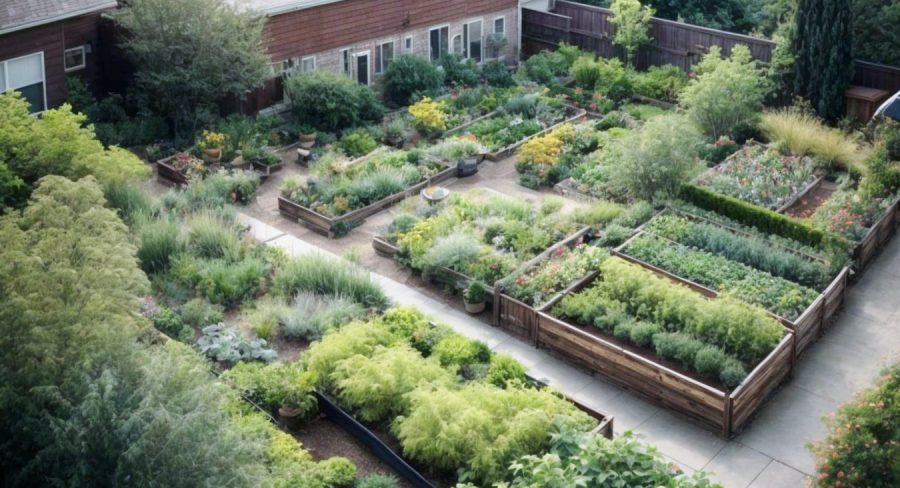
Discover the various types of urban backyard gardens, including container, raised bed, vertical, and hydroponic gardens. Learn how these green spaces enhance city living.
Types of Urban Backyard Gardens
Key Takeaways:
- Types of urban backyard gardens include container gardens, raised bed gardens, vertical gardens, hydroponic gardens, rooftop gardens, community gardens, and pollinator gardens.
- Each type offers unique benefits, from space-saving solutions to promoting biodiversity, making urban gardening accessible and enjoyable for city dwellers.
Explore the various types of urban backyard gardens! From container gardens on balconies to vertical gardens on city walls, urban gardening offers a green oasis in the concrete jungle.
Join us as we dive into the different types of gardens that can transform your urban space into a lush, productive, and beautiful retreat.
Types of Urban Backyard Gardens
Urban backyard gardens have become increasingly popular among city dwellers looking to reconnect with nature and enjoy the benefits of growing their own produce.
In this article, we will explore the different types of urban backyard gardens, from container gardens and raised bed gardens to vertical gardens and hydroponic gardens.
Whether you’re interested in creating a pollinator garden, a medicinal garden, or simply want to add some greenery to your outdoor space, there is a type of urban backyard garden for everyone.
Let’s dive in and discover the endless possibilities of urban gardening!
What Are Urban Backyard Gardens?
Urban backyard gardens refer to small-scale agricultural spaces created within urban areas, contributing to local food production, community engagement, and environmental sustainability.
These gardens play a crucial role in the concept of urban farming, allowing city dwellers to grow their own fresh produce in limited spaces.
By utilizing rooftops, balconies, or small plots of land, urban backyard gardens help promote food security by reducing reliance on grocery stores and increasing access to nutritious food options.
These green spaces serve as hubs for community connections, bringing neighbors together through shared gardening experiences and creating a sense of belonging and collaboration within urban environments.
Why Are Urban Backyard Gardens Popular?
Urban backyard gardens have become increasingly popular due to their ability to provide economic opportunities, foster social cohesion, offer fresh and locally sourced food, align with sustainable food trends, and enhance food security in urban settings.
One of the key reasons contributing to the rise in urban backyard gardens is the economic advantage they offer.
By growing their own fruits and vegetables, individuals can reduce their grocery bills significantly, especially with the rising cost of fresh produce.
This not only helps households save money but also enables them to have greater control over the quality and variety of their food.
These gardens create a sense of community and shared responsibility, which strengthens social bonds and promotes a supportive environment.
What Are the Different Types of Urban Backyard Gardens?
Urban backyard gardens encompass various types, including aquaponics systems, vertical farms, green spaces to combat urban heat islands, spaces promoting biodiversity, and areas dedicated to cultivating indigenous crops.
One popular type of urban backyard garden is the aquaponics setup, which combines aquaculture and hydroponics to create a sustainable system where fish waste fertilizes plants.
It’s a fascinating symbiotic relationship that maximizes space efficiency and resource use.
Vertical farming structures are another innovative approach, utilizing vertical space to grow food in urban environments.
These structures often incorporate advanced technologies like hydroponics or aeroponics to produce food efficiently in limited spaces.
Initiatives tackling urban heat islands use urban garden spaces with shade-providing trees, green roofs, and reflective surfaces to mitigate the heat buildup in cities.
These projects not only cool the environment but also enhance the aesthetic appeal of the cityscape.
Container Gardens
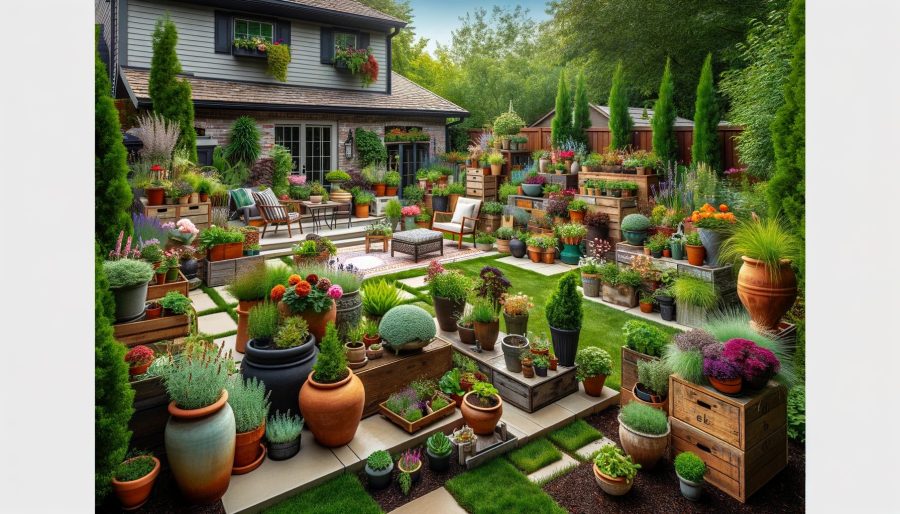
Container gardens are a popular choice for urban gardening enthusiasts, allowing the cultivation of various vegetable plants in small spaces using specialized containers and nutrient solutions to support plant growth.
They are easy to set up, affordable, and can be moved making them perfect for renters.
Regarding selecting plants for container gardens, it is essential to opt for varieties that thrive well in confined spaces, such as herbs like rosemary, thyme, and basil, compact vegetables like cherry tomatoes and lettuce, and colorful flowers like petunias, marigolds, and pansies.
- Container gardening techniques involve proper soil mix preparation, adequate drainage, regular watering, and occasional fertilization to ensure the plants receive all the necessary nutrients for healthy development.
- One crucial aspect of maintaining thriving container gardens is providing the right nutrient solution tailored to the specific needs of the plants, which can include liquid fertilizers, organic compost, or water-soluble minerals.
- The benefits of container gardening include space efficiency, easy maintenance, flexibility in placement, and the ability to control soil quality and drainage, making it an ideal choice for urban dwellers looking to enjoy gardening in limited spaces.
Raised Bed Gardens

Raised bed gardens are elevated planting areas commonly used in urban farming to facilitate crop development, improve soil health, and enable efficient gardening practices in limited spaces.
These gardens are typically constructed by forming enclosed structures using materials such as wood, concrete blocks, or recycled materials.
- Raised bed gardens offer several advantages for urban farming, including better control over soil quality and moisture levels, reduced weed growth, and ease of access for planting, watering, and harvesting.
- The elevated nature of raised beds helps to enhance crop growth and development by providing improved drainage and aeration, which are essential for healthy plant roots.
- The contained environment of these beds also aids in preventing soil compaction and erosion, promoting overall soil health and productivity.
- Due to their design, raised beds are particularly practical in urban settings where space is limited, allowing urban gardeners to maximize growing areas and efficiently utilize resources.
Vertical Gardens
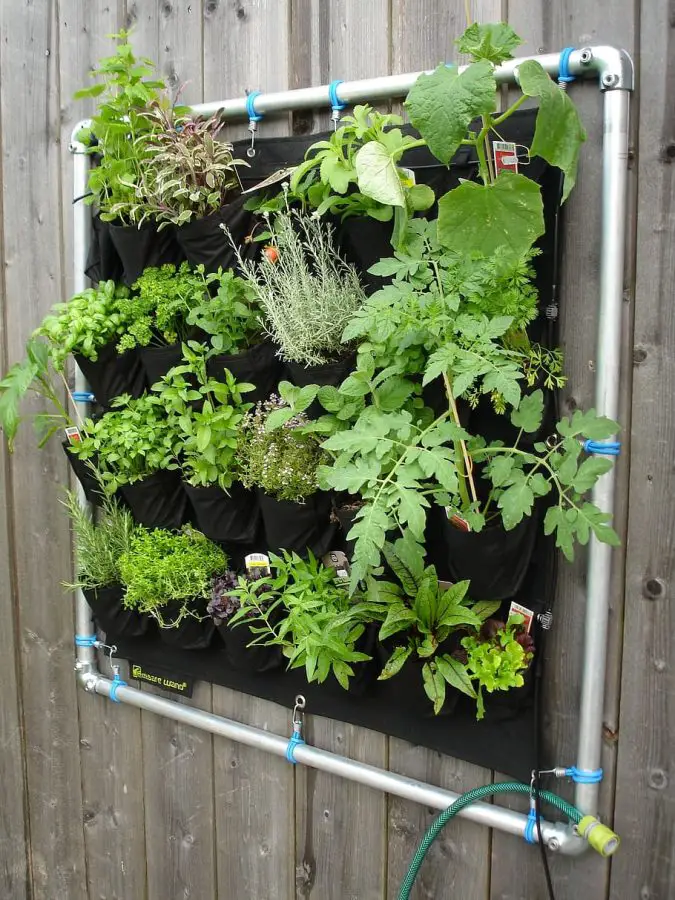
Vertical gardens utilize vertical support structures to cultivate plant life, including ornamental shrubs, offering unique growing conditions and controlled environments suitable for diverse plant species in urban settings.
These support systems can range from trellises to hydroponic towers, providing a stunning visual appeal while maximizing space efficiency.
With the ability to grow vertically, a wide array of plants such as trailing vines, succulents, and even vegetables can thrive in these setups.
The carefully controlled environments of vertical gardens ensure optimal sunlight exposure, watering, and nutrient distribution, leading to healthier plants and higher yields.
One of the significant advantages of such vertical setups is their space-saving nature, making them ideal for urban areas lacking horizontal gardening space.
Stackable planters save space and are great for growing small plants like strawberries or herbs.
Vertical gardens contribute to air purification, insulation, and noise reduction in urban environments, promoting a healthier and more sustainable urban ecosystem.
Hydroponic Gardens
Hydroponic gardens employ soil-less cultivation methods, utilizing nutrient solutions and recirculating systems to provide plants with specific growth conditions and optimal nutrient uptake in urban environments.
This innovative gardening technique eliminates the need for traditional soil by directly delivering essential nutrients to plant roots through water solutions.
Through recirculating systems, the water used is efficiently managed and reused, minimizing water wastage and promoting sustainability in hydroponic setups.
Indoor Garden Hydroponics Growing System
By creating tailored conditions such as pH levels and nutrient concentrations, hydroponic gardeners can ensure plants receive optimal nutrition and growth support.
The benefits of hydroponics for urban gardening are vast, including space-saving designs, faster growth rates, and precise control over plant health and productivity.
Rooftop Gardens

Rooftop gardens are green spaces developed on building rooftops, contributing to the urban environment by reducing stormwater runoff, improving air quality, and enhancing the aesthetic appeal of urban landscapes.
Implementing rooftop gardens not only adds beauty to city skylines but also serves as an innovative solution for managing stormwater runoff, which can help prevent flooding and reduce strain on municipal drainage systems.
These gardens act as natural filters, absorbing pollutants and particulate matter from the air, ultimately leading to a cleaner and healthier urban atmosphere.
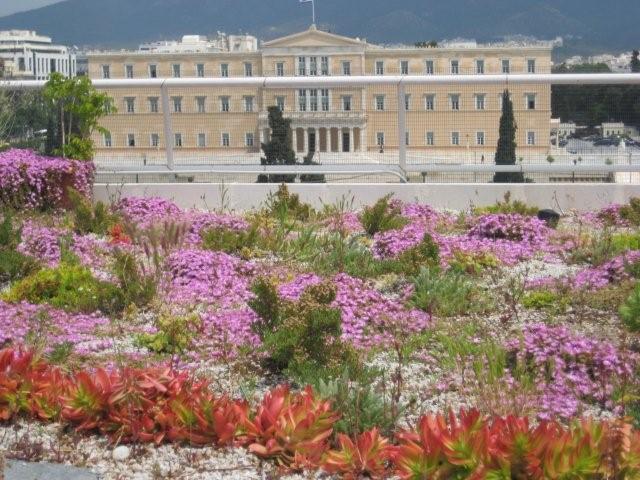
Rooftops adorned with lush greenery create peaceful retreats in bustling cities, promoting biodiversity and providing habitats for birds and insects.
Community Gardens
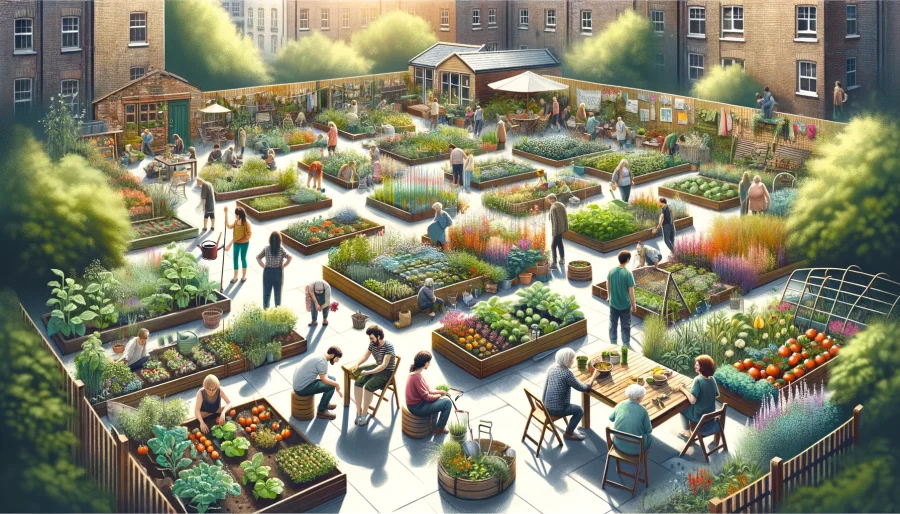
Community gardens are shared spaces where community members collectively participate in gardening activities, fostering community engagement, cultural exchange, and opportunities for income generation through shared produce.
These gardens often serve as hubs of social interaction, bringing together people from diverse backgrounds around a common passion for gardening.
- Community gardens play a vital role in preserving cultural traditions as different members share their gardening knowledge and techniques.
- They offer a platform for creating sustainable sources of income through the sale of surplus fruits, vegetables, and flowers grown collectively.
Permaculture Gardens
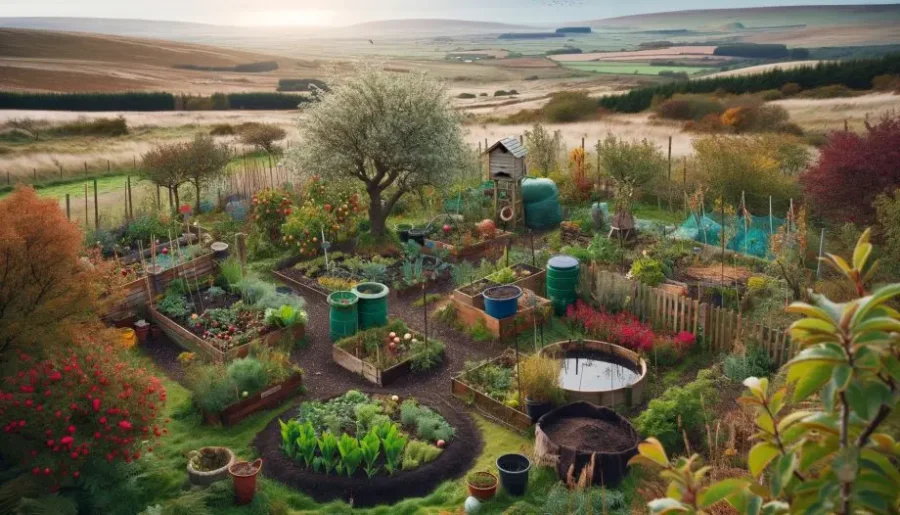
Permaculture gardens follow sustainable design principles, incorporating elements like forest gardening and animal husbandry to enhance food security and promote ecological balance in urban agricultural systems.
Forest gardening, a key feature of permaculture, mimics natural forests, aiming to create diverse, self-sustaining ecosystems that produce a variety of crops.
By integrating different plant species in multiple layers, from trees to ground covers, forest gardens maximize space and resources efficiently.
Animal husbandry plays a vital role in permaculture by utilizing animals for natural pest control, soil fertilization, and overall ecosystem health.
Chickens, for example, are commonly used in permaculture to provide eggs, control insects, and contribute to soil fertility through scratching and foraging.
Pollinator Gardens
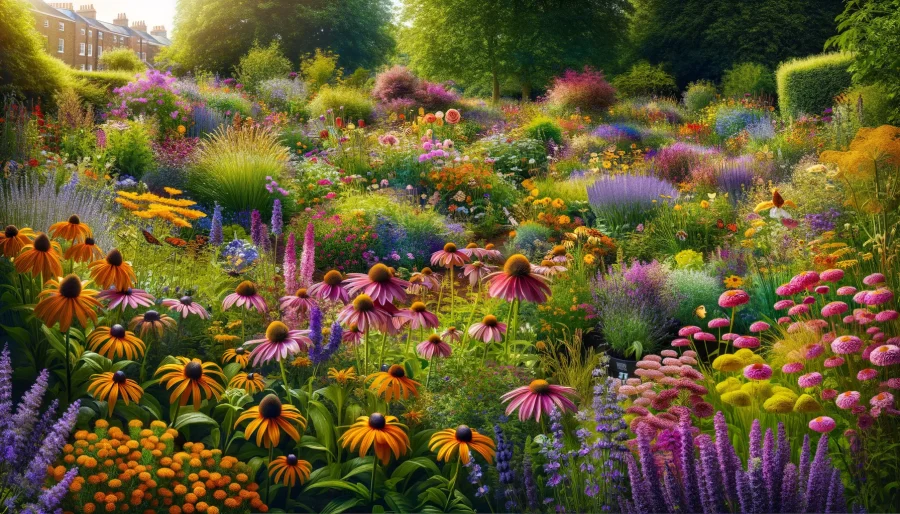
Pollinator gardens are specifically designed to attract beneficial pollinators, support the cultivation of indigenous crops, promote biodiversity, and ensure successful crop development in urban areas.
These gardens are meticulously crafted with diverse flowering plants that provide essential nectar and pollen for bees, butterflies, and other pollinating insects.
By creating a habitat rich in nectar sources, such as wildflowers and herbs, pollinator gardens play a vital role in sustaining local pollinator populations.
This, in turn, contributes to increased pollination rates for neighboring plants, leading to enhanced crop yields and improved overall garden health.
Edible Landscaping Gardens
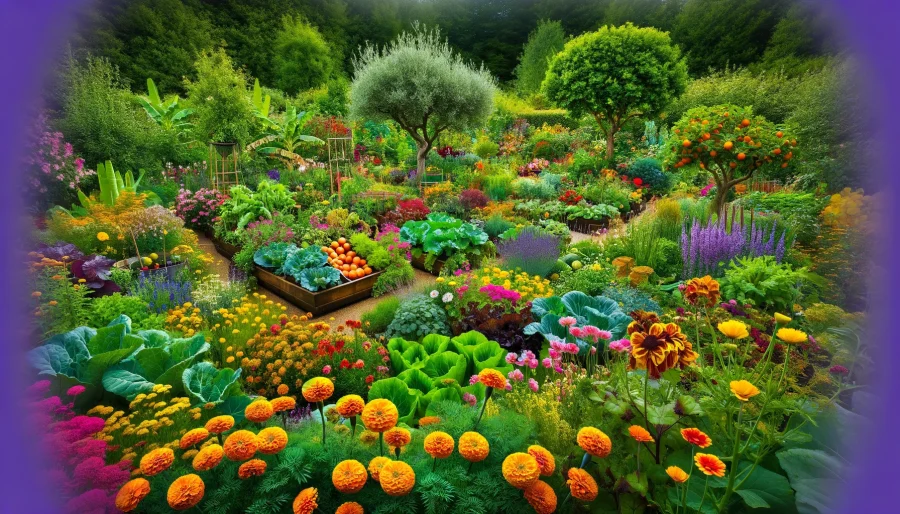
Edible landscaping gardens combine aesthetic appeal with practicality, providing accessible fresh produce to urban consumers and engaging food producers in sustainable food cultivation practices.
These gardens blur the line between traditional landscaping and food production, creating delightful spaces that also serve a vital purpose.
Edible plants such as fruits, vegetables, and herbs are strategically incorporated into the design, making urban areas more self-sufficient in terms of food sources.
By integrating elements like fruit trees, berry bushes, and raised vegetable beds, these gardens not only beautify the surroundings but also promote a healthier and more environmentally conscious lifestyle for urban dwellers.
Ornamental Gardens
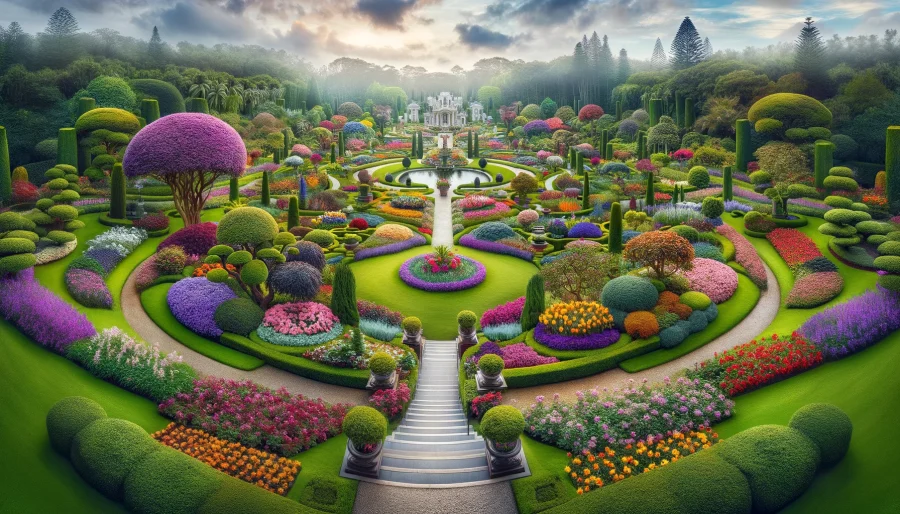
Ornamental gardens prioritize the cultivation of visually appealing plants and vegetation, contributing to urban landscapes, promoting aesthetic values, and potentially addressing lifestyle diseases through nutrient-rich plant content.
These carefully curated gardens are known for their diverse array of plant species, showcasing a harmonious blend of colors, textures, and fragrances.
Ornamental gardens play a crucial role in enhancing the biodiversity of urban environments, providing habitats for various helpful insects and birds.
Their rich plant varieties offer a natural source of essential nutrients, contributing to a healthier lifestyle for individuals accessing these green spaces.
The presence of ornamental gardens transforms concrete jungles into serene oases, providing mental and physical well-being benefits to city dwellers.
Medicinal Gardens
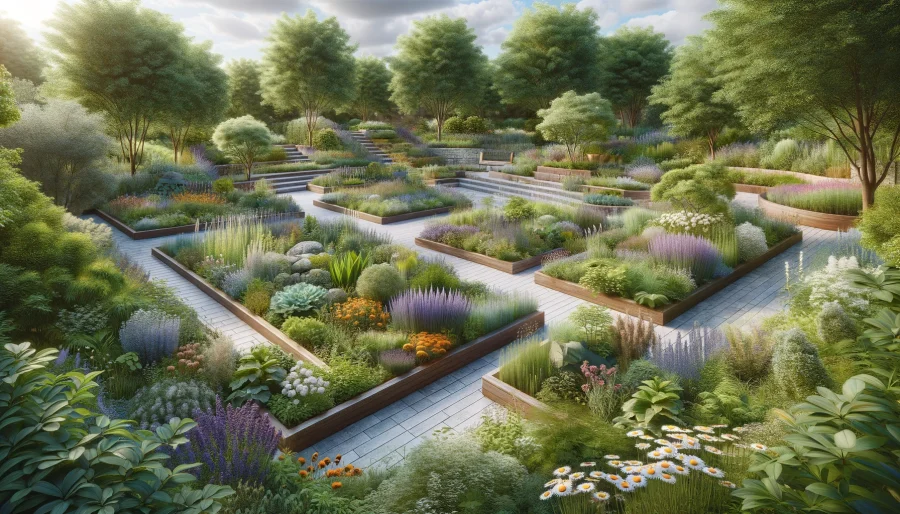
Medicinal gardens feature plants with therapeutic properties, facilitating natural pest management, addressing toxic matter concerns, and potentially utilizing water sources for irrigation and plant care in urban environments.
Such gardens are not only beneficial for health and wellness but also play a crucial role in sustainability efforts within urban areas.
The cultivation of medicinal plants contributes to reducing the reliance on chemical pesticides, creating a more eco-friendly pest control system.
These gardens serve as a natural solution for managing toxic elements present in the environment, acting as a green filter to purify the air and soil.
Water Gardens
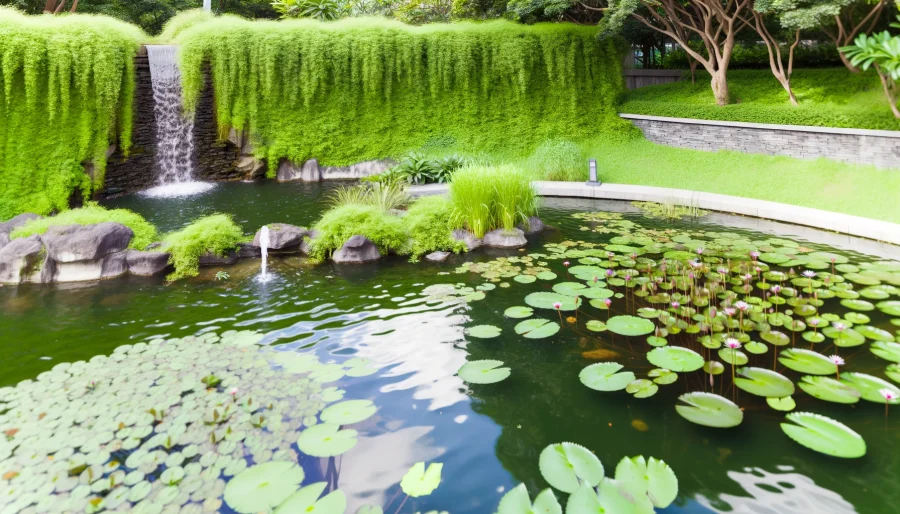
Water gardens incorporate aquatic elements in urban garden designs, adapting to diverse growing conditions and providing unique landscaping features for urban dwellings.
One of the key advantages of integrating water gardens in urban settings is their ability to attract a diverse range of wildlife, creating a harmonious ecosystem within the bustling cityscape.
Aquatic plants, such as water lilies and lotus flowers, not only add visual appeal but also play a crucial role in maintaining water quality by absorbing excess nutrients.
The soothing sound of water flowing through these gardens can help mask urban noise pollution, offering a serene oasis amidst the hustle and bustle.
Succulent Gardens
Live Succulent Plants (20 Pack)
Succulent gardens emphasize the cultivation of low-maintenance plants like succulents, often grown in raised beds, promoting a sustainable urban gardening approach and potentially offering health benefits by reducing lifestyle diseases.
Succulent plants are well-suited for raised bed cultivation due to their ability to thrive in well-drained soil, making them ideal for urban gardeners with limited space.
These plants require minimal watering, making them perfect for those with busy schedules or living in arid climates.
The unique shapes and colors of succulents add a visually appealing element to any garden, creating a tranquil oasis in the midst of bustling city life.
Incorporating succulent gardens into urban landscapes not only enhances the aesthetic appeal but also contributes to environmental sustainability by promoting water conservation and reducing the carbon footprint associated with traditional gardening practices.
Fairy Gardens
Fairy gardens are miniature landscapes featuring whimsical elements and carefully selected plants, often cultivated in containers or adorned with ornamental shrubs, offering creative food choices for urban gardening enthusiasts.
These charming gardens are beloved for their ability to transport you to a magical world right in your backyard or even on a windowsill.
The whimsical design elements, such as tiny fairy houses, miniature bridges, and delicate pathways, add a touch of enchantment to these tiny landscapes.
Using a variety of container plants like succulents, mosses, and ferns, gardeners can create diverse and visually appealing scenes within their fairy gardens.
- Incorporating ornamental shrubs like dwarf conifers or miniature roses can provide structure and height variation to the garden, enhancing its overall appeal. The contrast of textures and colors from different plant varieties elevates the visual interest of the fairy garden.
- For those looking to add a playful twist to their urban gardening experience, fairy gardens offer unique opportunities for creativity. Miniature tea parties, tiny vegetable patches, or even tiny picnic areas can be incorporated to personalize the garden and make it truly magical.
Zen Gardens
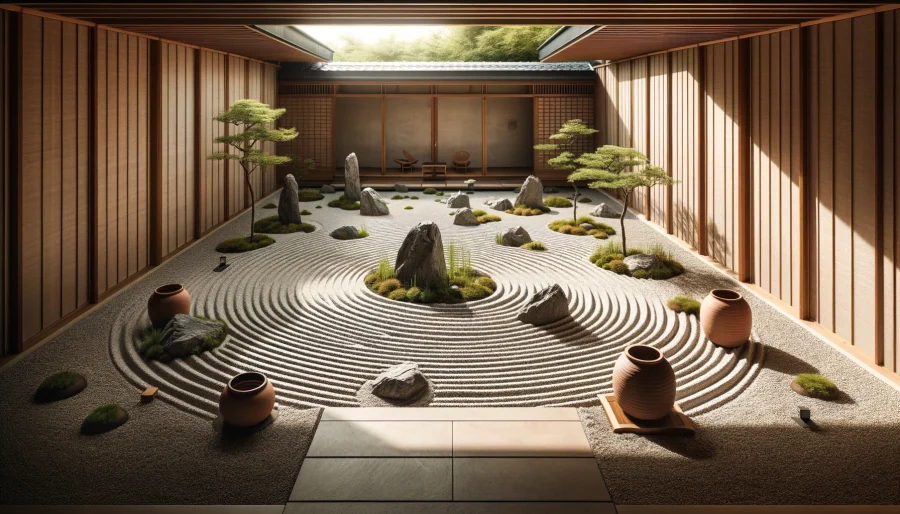
Zen gardens embody tranquility and simplicity through minimalist design, often featuring terracotta pots, automated watering systems, and symbolic representations that transcend conventional food marketing channels.
The essence of Zen gardens lies in their ability to create a serene environment that encourages mindfulness and reflection.
The carefully placed rocks and raked gravel symbolize ripples in water, offering a sense of harmony and balance to those who gaze upon them.
The use of terracotta pots in these gardens adds a warm earthy tone, enhancing the natural beauty of the space.
Automated watering systems ensure that the plants thrive without the need for constant intervention, allowing for a low-maintenance garden that embodies the principles of simplicity and efficiency.
Types of Urban Backyard Gardens FAQs
Q. What are the different types of urban backyard gardens?
A. There are several types of urban backyard gardens, including container gardens, raised bed gardens, vertical gardens, herb gardens, vegetable gardens, and flower gardens.
Q. What is a container garden?
A. A container garden is a type of urban backyard garden where plants are grown in containers such as pots, buckets, or window boxes, instead of directly in the ground.
Q. What is a raised bed garden?
A. A raised bed garden is a type of urban backyard garden where plants are grown in a raised and enclosed area, typically made of wood or stone, filled with soil. This type of garden is ideal for smaller spaces and provides better soil drainage and weed control.
Q. What is a vertical garden?
A. A vertical garden is a type of urban backyard garden where plants are grown on a vertical structure, such as a wall or trellis. This type of garden is ideal for small spaces and adds a unique aesthetic to the outdoor area.
Q. What is an herb garden?
A. An herb garden is a type of urban backyard garden where plants that are used for culinary or medicinal purposes are grown. These plants can be grown in containers, raised beds, or directly in the ground.
Q. What is a vegetable garden?
A. A vegetable garden is a type of urban backyard garden where various types of vegetables are grown. This type of garden can be a traditional in-ground garden or can also be grown in containers or raised beds.
Q. What is a flower garden?
A. A flower garden is a type of urban backyard garden where various types of flowers are grown for their beauty and aesthetic appeal. These gardens can range from small containers to larger, more elaborate designs.
Conclusion: Embracing Urban Gardening Diversity
In conclusion, the types of urban backyard gardens are as diverse as the cities they inhabit.
From the practicality of container gardens to the innovative hydroponic systems, each type offers a unique way to bring nature into our urban lives.
These gardens not only provide fresh produce and beautiful green spaces but also contribute to environmental sustainability and community well-being.
Whether you have a small balcony or a spacious rooftop, there’s an urban garden type that can fit your space and lifestyle.
Embrace the joy of urban gardening and transform your outdoor area into a thriving green oasis.
Benefits of Urban Gardening
- Fresh Produce: Enjoy homegrown fruits and vegetables.
- Green Spaces: Create a natural retreat in the city.
- Environmental Impact: Reduce your carbon footprint.
Tips for Starting an Urban Garden
- Choose the Right Type: Select a garden type that suits your space.
- Start Small: Begin with a few easy-to-grow plants.
- Use Quality Soil: Ensure your plants have the nutrients they need.
Future of Urban Gardening
As cities continue to grow, urban gardening will play a vital role in creating sustainable, livable environments.
By embracing the various types of urban backyard gardens, we can cultivate a greener, healthier future for our urban communities.
Learn more: Backyard Gardening: A Comprehensive Guide
Related Content
Visit my Amazon Influencer Page for videos and gardening products Grow Your Own Garden


